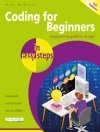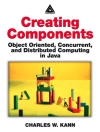Learn Revit Architecture the hands-on way
For those who like to learn by doing, this Autodesk Official
Press book shows you how to build a four-story office building one
step at a time, providing you with real-world practice you might
expect to encounter on the job. Concise explanations, focused
examples, step-by-step instructions, and an engaging hands-on
tutorial make this book the perfect way to learn Revit
Architecture. In addition, you can download starting files for each
chapter from the website in order to compare your work to the
authors, or start fresh with any chapter in the book.
Expert author Eric Wing first introduces the interface and Revit
conventions, and then moves directly into building modeling. You’ll
learn to place walls, doors, and windows, work with structural
grids, beams, and foundations; add text and dimensions, and use
dimensions as a design tool. As the building takes shape, you’ll
discover how to generate construction documentation, create
schedules, work with families, consider site issues, and use
Revit’s rendering capabilities. Here are some of the skills you can
acquire from this book:
* Understanding Revit’s interface, views, and grids
* Creating and editing roofs, railings, stairs, and ceilings
* Generating documentation and construction schedules
* Using advanced features like creating hosted families, system
families, and formulas
Autodesk Revit Architecture: No Experience Required is a
completely self-paced guide. You can work along with the tutorial
from cover to cover or jump in anywhere. No matter how you use this
book, you’ll be able to transfer the useful concepts to your
professional practice.
Über den Autor
Eric Wing is the Building Information Modeling manager at
a New York engineering firm, director of the Autodesk User Group
International (AUGI) Training Program, author of four books, and
Revit columnist for AUGIWorld Magazine as well as AUGI
Hot News and Connect Press. Eric is an Autodesk
Certified Instructor and popular speaker at Autodesk University,
presenting to groups of 500-1000 Revit users at each of his
three AU sessions, and also frequently speaks at other industry
events, including American Institute of Architects, CSI, and AUGI
user group events.












